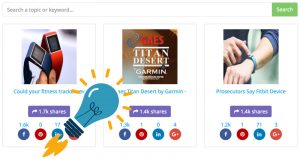You’re in a shoe store, trying on a pair of Nikes. The vendor is going on about how great the shoes are, but you’re not convinced, so you walk out empty handed. Sometime later, that same vendor pops up out of nowhere in the supermarket. “I’m just wondering if you’ve reconsidered the shoes,” he says. “I’ve got a photo of them right here.” You scoff and walk away again, but the vendor keeps coming back; you bump into him on the sidewalk, or at the hardware store. He even breaks into your home and finds you on your living room couch. “I’d be happy to suggest some other shoes you might like based on your trip to the store,” he says.
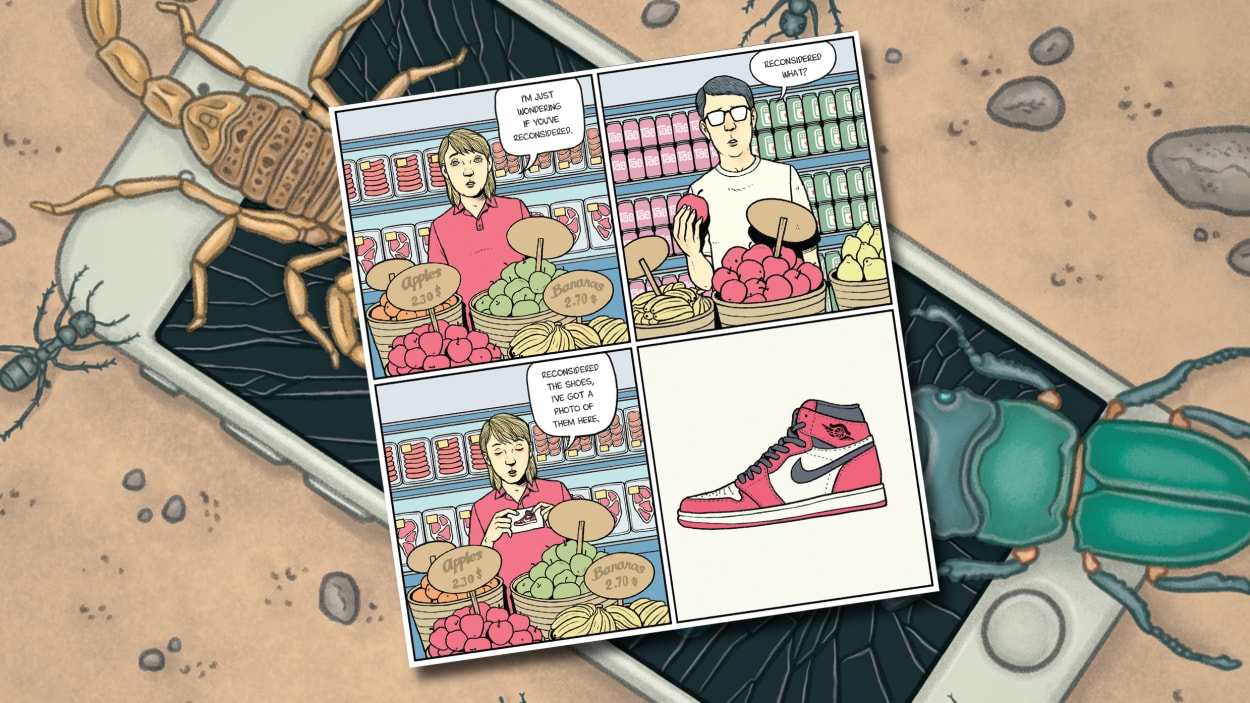
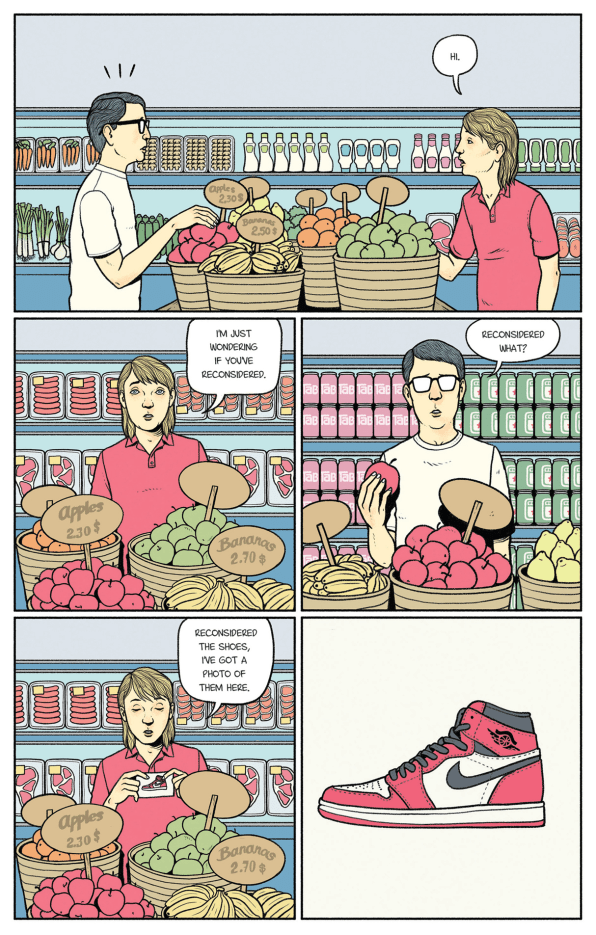
This scenario makes up the opening chapter of a new graphic novel by WeTransfer cofounder Damian Bradfield and the Spanish illustrator David Sánchez. Out now, Algorithmic Reality is a warning against the pernicious influence of Big Tech and the short-termism of technology.
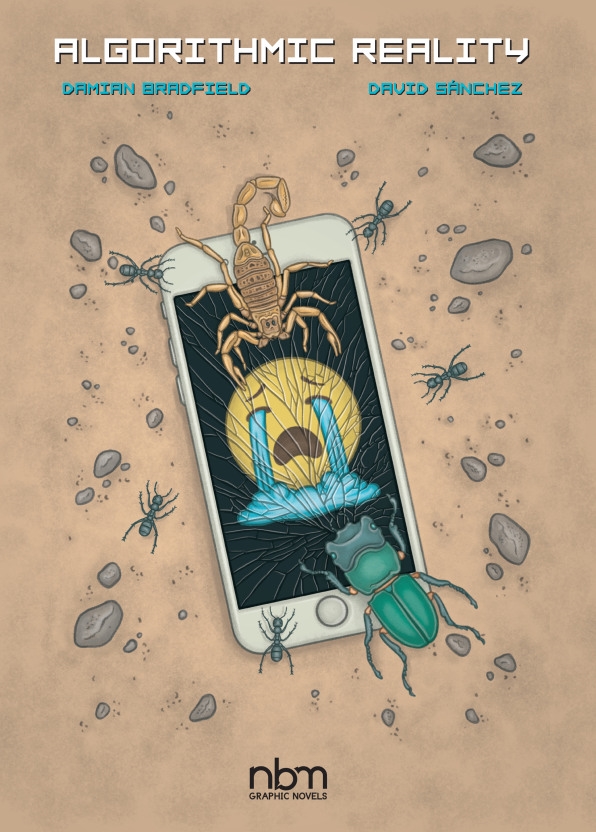
In the opening chapter, Bradfield transposes online marketing and targeted ads to the real world. By blurring those boundaries—between online and offline worlds—the author urges us to consider why we seem more likely to accept something in the digital realm that may seem unethical in real life.
Throughout the book, Bradfield and Sánchez paint a Black Mirror-like portrait of a society that is beholden to technology. Brands are stalking us, insurers are demanding that we trade our privacy for lower premiums, and grocery stores are overrun with personal shoppers employed by a certain company called Amazin.
Bradfield could have made the same points by writing a regular novel, but the narrative is rendered all the more powerful by Sánchez’s rigid illustration style, where the characters’ apathy takes on visual form. “There’s a coldness that gives you this stark reality that I felt fitted with the storyline,” Bradfield says. Ironically, the pair developed the book entirely over WhatsApp texts, without ever talking on the phone.
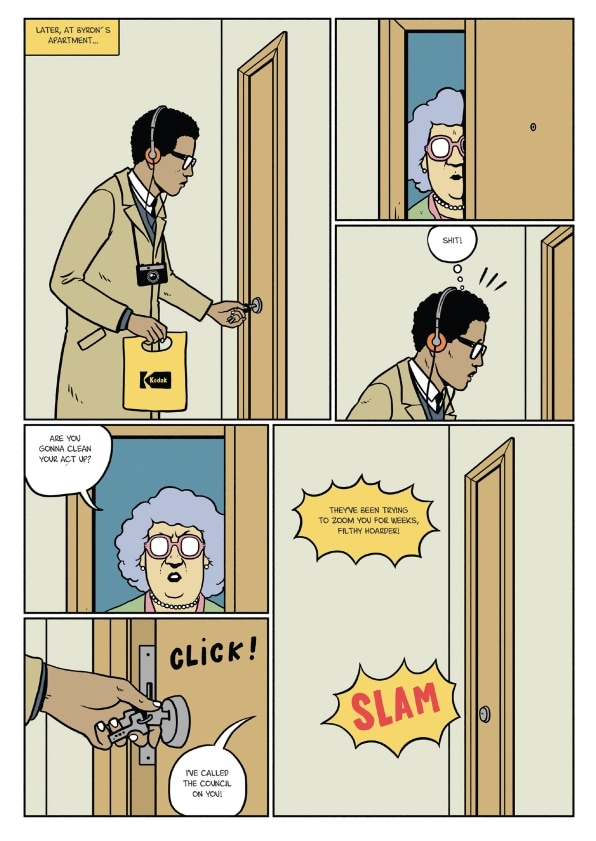
In one chapter, we follow a luddite as he navigates a world where vinyl records have fallen into oblivion and cash payments are prohibited. The character is based on a friend of Bradfield’s who’s “100% that person,” and the story ends with him getting arrested for data avoidance. It’s a dystopian vision, but for Bradfield, “it’s all happening right now.” He references his nephew, who just got his driver’s license. “His insurance premium is through the roof, but if he wants to reduce his insurance premium, he puts a black box in his car, and they can track him all the time to see how he’s driving.”
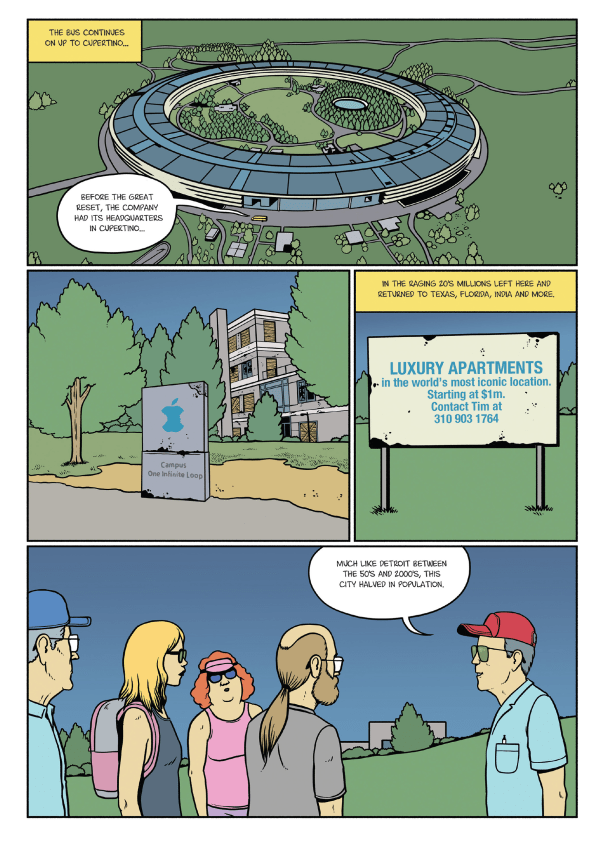
The book ends with a group of tourists visiting a Silicon Valley boomtown, once thriving with tech companies and now riddled with ghosts. At the end, they are stargazing through a set of VR goggles, except they’re not marveling at stars but at a constellation of satellites. The last vignettes show an Amazon flag—or should I say, Amazin—planted on Mars.
Sure, the whole thing sounds a bit satirical, but the novel reads more as a warning sign for what might happen if we don’t change our relationship with technology. “We’re watching the world being taken over by corporations who might not share the same values [as we],” says Bradfield. “It’s quite likely that some of these big companies will be pushing out into the moon, Mars, the solar system, and taking advantage of it. We’ll watch it happen, and we’ll act surprised we didn’t see it coming.”
(10)
Report Post
